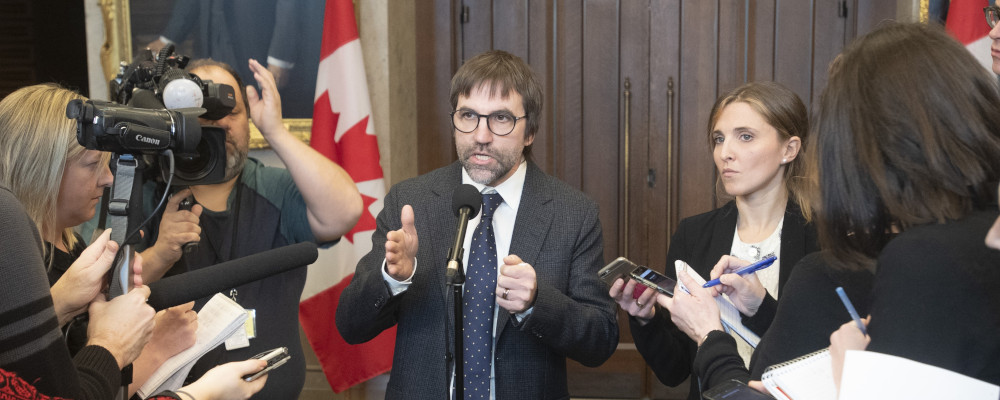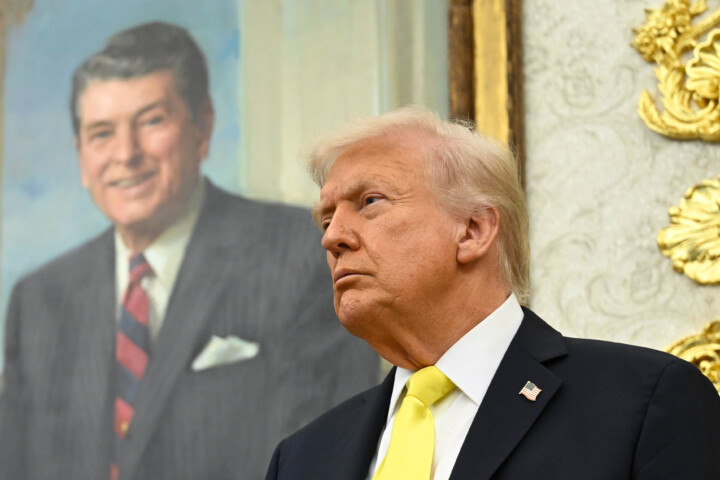True story: The other day, after I referred to the dissembling Minister of Canadian Heritage Steven Guilbeault and Minister of Defence Harjit Sajjan as “shifty buffoons,” someone on Twitter read it as “shifty baboons” and got a good, if unintended, laugh out of it. Maybe he was on to something. After all, the first instinct of both politicians and primates, when provoked, is to fling faeces.
I’d better stop the analogy there, but it was certainly quite a week for federal monkey business (sorry, stopping … now). After several days of insisting that there was no reason to protect user-generated content from government censorship under Bill C-10 (which made it rather difficult to explain why such protection had been included in first place), Guilbeault announced that a new amendment to the bill would offer that protection (again). All’s well that ends well, right?
Not exactly. Even if the new proposed amendment does what the Liberals say it does (and there is good reason to think it won’t), I still can’t shake the feeling of dread I got reading Andrew Coyne’s column more than a month ago about the full scope of federal plans for media regulation. Coyne’s piece starts out politely enough — “I don’t want to alarm you, but you might like to know that the federal government is about to take over the media” — but it is clear that this is the soothing voice of the plane’s captain warning of an imminent crash landing. “Ladies and gentlemen, I don’t want to alarm you, but you might like to know that that rapidly approaching mountain range is our new destination.”
Coyne, to his credit, has always been willing to bite the hand that feeds him, chew it over, and spit it out into his columns. He has been a steady critic of the Liberal print media bailout, even as his former and current newspaper bosses were cashing the cheques and asking for more, but his April 1 column issued a broader warning. Not only is the federal government “putting all of the country’s newspapers on its payroll,” it is also drafting legislation to subject online content to review and possible removal — if not by the CRTC, then by Big Tech censors acting on its behalf, effectively outsourcing what the government just promised not to do itself in Bill C-10.
I’d say this is government paternalism run amok, but “paternal” implies something caring, something human. What the Liberals have planned is closer to the cold and impersonal censorship of recent Big Tech decisions to demonetize edgy YouTube channels, suspend Twitter accounts, ban the sale of controversial books, and deplatform conservative documentaries.
Of course, what is “obviously illegal” to a government censor may be rather less clear to the rest of us in the real world.
Heritage Minister Steven Guilbeault has, reportedly, been inspired by Germany’s Network Enforcement Act (NetzDG), which threatens online and social media companies with fines of up to €50 million for “failing to remove … ‘obviously illegal’ content’ within 24 hours.” Of course, what is “obviously illegal” to a government censor or a tech algorithm may be rather less clear to the rest of us in the real world.
Even if the law applied only to “hate speech” (and there has been no assurance that it will be so narrowly tailored), it would be a challenge to enforce it. In general usage, “hate” has become one of Orwell’s “meaningless words,” — a word that, like “fascist” now has “no meaning except in so far as it signifies ‘something not desirable.’” But in Canada “hate” also has a legal meaning, albeit one that I doubt very much this government understands. How many Liberal cabinet ministers do you think would agree with the Supreme Court of Canada that “hate speech” does not include “repugnant or offensive ideas”? Or that hate speech legislation cannot “prohibit expression which debates the merits of reducing the rights of vulnerable groups in society. It only restricts the use of expression exposing them to hatred as a part of that debate”?
The Supreme Court’s narrow definition of hate speech will run up against a public — and, it appears, also a political — expectation that anything that offends a vocal minority, let alone a vocal majority, will be removed and repeat offenders will be banned in a form of prior restraint that would be unconstitutional if enforced by the government. And the Court’s nuanced and context-specific speech doctrine isn’t going to be much help to the algorithms monitoring your Twitter feed and TikTok videos. With the threat of fines and further regulation in the background, which side do you think tech companies will err on, speech or the memory hole?
None of this is to deny the problems of online communication, and of social media in particular, or that there is a role for the government to play in policing them at the margins. I doubt many Canadians would have a problem with the government identifying and shutting down foreign disinformation campaigns, for example. We would do the same if we found the Russian or Chinese government spreading disruptive lies in traditional Canadian media and, except for the challenges posed by volume, there’s no reason to treat the media of Zuckerberg and Gutenberg differently.
If the federal government wants to tackle the worst pathologies of social media, however, it is focused on the wrong problems. Someone being wrong on the internet is not the most serious issue of our time. Or, if it is an issue, it’s one without a solution that doesn’t come with worse consequences. Instead, the government should focus on the perversities of a business model based on the manipulation of its users. If the Liberals really want to hit Big Tech, then hit them where it hurts: their user data.
Strict data privacy laws and prohibitions against sharing data across platforms would undermine an industry to which we are all just digital cows, our likes and dislikes, our appetites and perversions, milked by server farms for profit. The downside would be some minor inconveniences — you wouldn’t get as many creepy ads in your Instagram feed for that bathing suit you just Googled, your Facebook page wouldn’t serve up as many curated stories about your favourite celebrities, and just maybe some tech companies would leave the Canadian market altogether — but, on the plus side, you would no longer be a human product trapped in your own digital Truman Show.
With the threat of fines in the background, which side do you think tech companies will err on, speech or the memory hole?
And if the government really wanted to do some good, it would stop the unregulated experimentation by social media companies on the brains of children. We know exposure to online content alters our neural pathways, changing the way we process information — in other words, changing the way we think. Most of us have experienced this to some small but identifiable degree first hand, but if you want scientific evidence, the research confirms that: “the Internet’s digital distractions and supernormal capacities for cognitive offloading seem to create a non‐ideal environment for the refinement of higher cognitive functions in critical periods of children and adolescents’ brain development.” Translation: your children aren’t going to be Socrates,.
We also know from our own experiences that social media is addictive, but how addictive? Just google “social media addiction cigarettes” and read about how much worse it is than smoking. And we know that being immersed in an image-dominated world of “selfies,” “likes” and “friending” is poison for adolescent self-esteem and associated with increased depression. Throw in unfiltered access to pornography so extreme it would have made Larry Flynt blanche, and it adds up to corporate predation and child exploitation on an unprecedented scale.
It took decades before we forced tobacco companies to stop targeting children and fined stores that sold cigarettes to minors. How long will we wait before taking similar steps to protect our privacy, enact child protection laws for social media, and require proof of age for sites that should be inaccessible to minors?
If TikTok and Twitter were chemical substances, they would be kept away from children. If PornHub and YouPorn were print publications, you’d have to show proof of ID to access them. And we let Big Tech spoon-feed them to children. It is the great corporate scandal of our time, unfolding daily on screens and smartphones across the country, while the federal government fiddles with CRTC’s CanCon rules.
Recommended for You

From Donald Trump to Doug Ford, today’s leaders are living in Ronald Reagan’s shadow

The CBC claims it wants to appeal to rural and Western Canadians—does anyone actually believe that?

Canadians want reassurance, not austerity, from the federal budget: New polling

The Supreme Court’s child porn ruling lays bare the limits of its imaginary idea of justice





Comments (0)